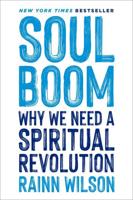Publisher's Synopsis
A bold piece of work, The Natural History of Atheism by John Stuart Blackie explores the constructs of theism, atheism and polytheism in minute detail. Spread across six chapters, the book initially treads through a section called Presumptions which postulates the underlying premise of the author. John Stuart Blackie effortlessly weaves an engrossing narrative against the backdrop of different religious beliefs.
The deliberations transcend cultures and borders to rope in Greek polytheism and Buddhism, providing a number of riveting causes for atheism, which unfold throughout the length of the book. The The Natural History of Atheism is a great insight in to why certain groups do not believe in the existence of God - For John Stuart Blackie these reasons are underpinned by traits that include ignorance, pride and moral turpitude among others. The last section of the book dwells on atheism due to reaction and a disbelief in Christianity. The author is able to successfully distinguish between different contexts and settings to provide logical explanations for rise of atheism across multiple religions.
The Natural History of Atheism is hard hitting and straightforward in its approach. With an already well-established professor and man of letters as its author this work is full of piquant wit, yet the narrative is decidedly structured, as John Stuart Blackie unfolds his most cogent arguments at the right moments. If not for tracing the roots of atheism and its underlying causes, readers would be pleased with The Natural History of Atheism by John Stuart Blackie for its deep insights into different religions. This book will cater to a larger audience as it is premised on universal issues in the realm of religion and belief systems.
About the Publisher
Forgotten Books publishes hundreds of thousands of rare and classic books. Find more at www.forgottenbooks.com
This book is a reproduction of an important historical work. Forgotten Books uses state-of-the-art technology to digitally reconstruct the work, preserving the original format whilst repairing imperfections present in the aged copy. In rare cases, an imperfection in the original, such as a blemish or missing page, may be replicated in our edition. We do, however, repair the vast majority of imperfections successfully; any imperfections that remain are intentionally left to preserve the state of such historical works.







